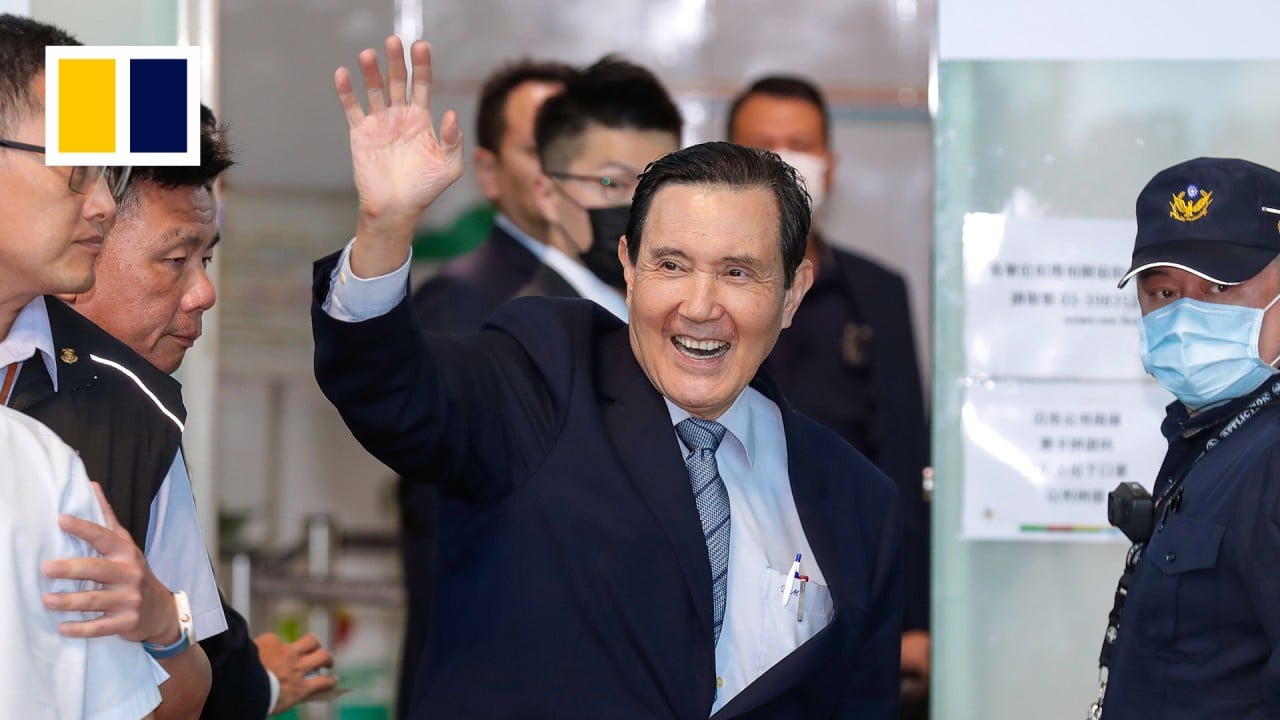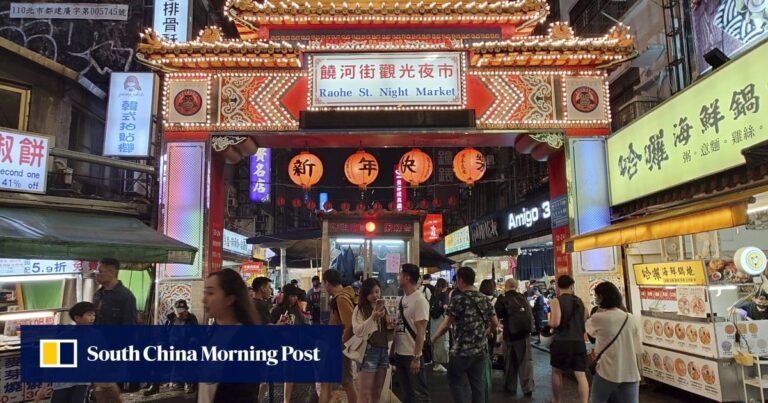Movement between the islands and the mainland has become increasingly restricted since 2019, as tensions on both sides of the Strait have led to restrictions.
“We sincerely invite our Taiwanese compatriots to visit the mainland more often, and we are happy to see mainlanders visit our homeland’s treasure island,” Xi said, adding that the exchanges would “promote trust.” “We can build close bonds between our hearts and minds.” between the two sides.
Citing President Xi’s message, Zhu said there were “bright prospects” for exchanges despite “artificial obstacles”, citing travel restrictions imposed by Taipei authorities.
‘Consumer confidence’: Taiwan’s tourism industry misses mainlanders as ban continues
According to Zhang Wen-sheng, vice president of the Graduate School of Taiwan Studies at Xiamen University, the resumption of travel after Lai is inaugurated as the next leader on May 20 will depend on “the policies of the Taiwanese authorities.”
Lai, a member of the Democratic Progressive Party who once called himself a “pragmatic independence activist,” won Taiwan’s presidential election in January. The Chinese government labeled him a “troublemaker.”
Lai said the new administration would handle cross-strait relations in a “rational and prudent manner” and maintain the peaceful status quo across the Taiwan Strait. He made the remarks Tuesday during a meeting with a delegation from the Washington-based think tank Center for Strategic and International Studies.
The Chinese government is paying close attention to Mr. Lai’s inaugural speech, where he is expected to outline the new government’s basic policies, including efforts to address cross-strait issues.
Taiwan’s next president asks Chinese government to participate in interparty talks
Cross-strait tourism has typically reflected the ups and downs of the island’s relationship with mainland China.
In July 2008, after Mr. Ma of the pro-mainland Kuomintang Party became president, groups from the mainland were allowed to visit Taiwan for the first time since the civil war.
Individual tourists from mainland China were allowed to travel to the island in 2011, and the number of cities allowing individual visits has gradually expanded to 47 cities as of 2015.
However, cross-strait relations have deteriorated since Tsai Ing-wen of the Democratic Progressive Party became president in 2016. In 2019, the Chinese government suspended travel to Taiwan by individual travelers from the mainland.
In early 2020, Taiwan suspended entry to all visitors, including those from mainland China, as part of its coronavirus prevention measures.
In October 2022, the island lifted pandemic travel restrictions, except for travelers from mainland China.

01:41
Former Taiwanese President Ma Ying-jeou calls on both sides of the Taiwan Strait to “avoid war”
Former Taiwanese President Ma Ying-jeou calls on both sides of the Taiwan Strait to “avoid war”
In a further step in Taiwan’s gradual reopening, mainland Chinese living or studying abroad were allowed to travel to Taiwan from September, but mainland-based tourists remained prohibited.
Taiwanese authorities announced in November that they would lift restrictions on Taiwanese groups traveling to the mainland, which Beijing authorities had allowed in May last year.
However, Taipei City withdrew its reopening plan in February.
Group tours of Taiwanese tourists to mainland China, except for those scheduled to travel from March to May, as the Chinese government is refusing to offer incentives for allowing groups of mainland Chinese tourists to visit Taiwan. The participation procedure has been suspended.
Mainland China used to be the largest source of tourists to Taiwan, with the number exceeding 2.7 million in 2019, accounting for 23% of the total.
The number of mainland tourists visiting Taiwan will drop to just over 220,000 in 2023, according to data from Taiwan’s Ministry of Transportation and Communications.

